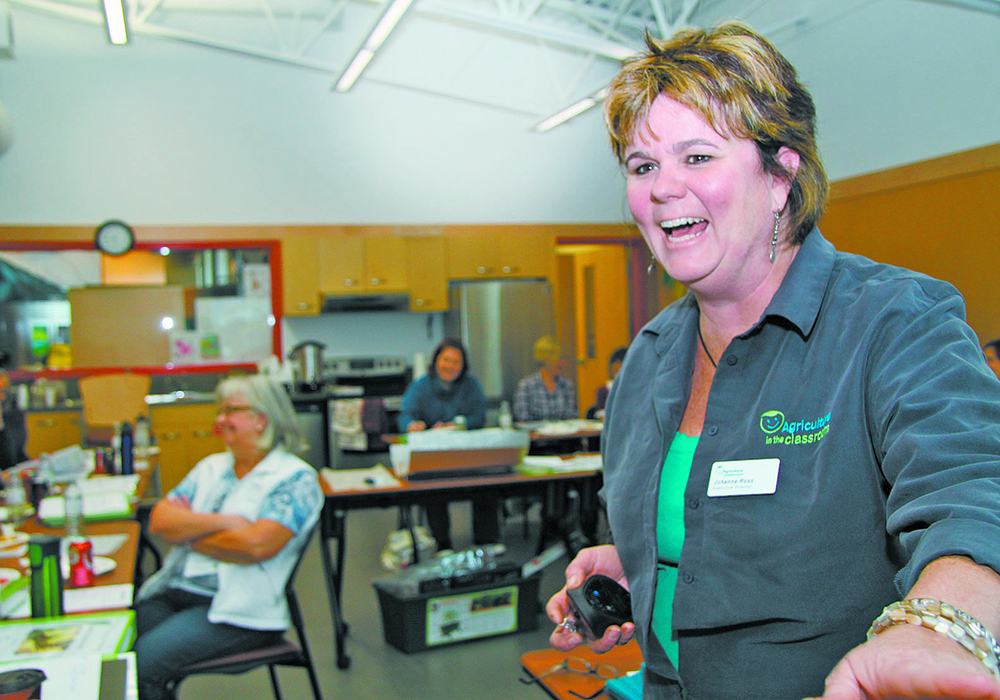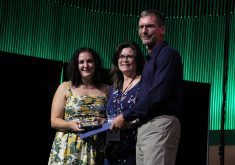An innovator in agricultural education and a member of the Canadian Agricultural Hall of Fame has decided to retire.
Johanne Ross will work her last day as executive director of Agriculture in the Classroom-Canada on Feb. 9.
“Please join the board of directors of Agriculture in the Classroom–Canada in extending best wishes to Johanne Ross, who will step back from AITC-C after seven years as the founding executive director of our organization,” the organization’s website says.
AITC-C has become a national force in connecting students to agriculture, thanks in part to Ross’ leadership. It now leads 10 provincial organizations and is the primary voice for agricultural education in the country.
Read Also

Huge Black Sea flax crop to provide stiff competition
Russia and Kazakhstan harvested huge flax crops and will be providing stiff competition in China and the EU.
In 2021-22, AITC-C delivered programs that reached 2.3 million students and another 13 million people through social media.
That’s a massive number, considering the challenges of COVID and other issues related to the pandemic.
Ross, who lives in Minnedosa, Man., was possibly destined to lead a group like Ag in the Classroom-Canada.
“My dad was with United Grain Growers, so we had agriculture in our home. There were five of us kids in our family, and we all ended up taking our ag degree,” said Ross in 2011.
She grew up in Brandon and Winnipeg.
As a teenager, she also considered becoming a teacher.
In Grade 12, she applied for the faculty of education at the University of Manitoba. But a visit to an agricultural trade show with her siblings changed her mind.
She studied agriculture at the U of M, where she met her husband, a farmer from Minnedosa.
After university, Ross held jobs in the crop inputs and feed business, before taking time off to have children. In 2000, she took a position with Ag in the Classroom-Manitoba because her sons were of school age and she wanted to return to the workforce.
“(It sounded) like something I would love because… (it) is a neat way to combine my other interest in education,” she said.
Before Ross arrived, AITC-Manitoba would send curriculum material to schools and hope that teachers would use it in their classrooms.
She quickly realized that strategy was a mistake.
Farmers and people in the ag industry needed to be in the classroom, talking about what they do and why they love their job.
“That’s the foundation of our success — telling the stories of the real people in agriculture,” Ross said in 2021.
Having a farmer, a veterinarian or crop scientist in the classroom, rather than a worksheet about food and farming, made all the difference.
“You see the students light up when they make these connections…. The food on their plate and how it actually got there. (Because) they’re not usually thinking much past the grocery store”
Trish Jordan, a former Monsanto spokesperson and previously the president of Ag in the Classroom-Manitoba, summarized Ross’s ability to connect with students, teachers, corporate executives and everyone she met.
“If I was going to choose any word to describe Johanne, I would use passionate…. That doesn’t mean that people before her didn’t have that same capability, but Johanne certainly has a unique ability to communicate about agriculture and help people see what a great place it is to be,” Jordan said in 2011.
In addition to her work developing and leading programs for students, Ross helped AITC-Canada build relationships with ag leaders in the public and private sector.
“She raised the profile of Agriculture in the Classroom at the national level and secured significant financial support from Agriculture and Agri-food Canada as well as many sector partners, to support our critical mission of creating agriculture and food literate citizens,” AITC-C said in a release announcing her retirement.
In 2021, Ross said it’s difficult to measure the impact of Ag in the Classroom.
Building a population of Canadians with a basic knowledge of farming and food will take time.
“It’s a long game. And it is going to take a while to make that big difference,” Ross said.
“But reaching two million students last year (in 2020) was pretty monumental. So maybe it will happen sooner than we think.”
For her years of work, making millions of students aware of farming, food production and career opportunities in the ag sector, the Canadian Agricultural Hall of Fame inducted Ross in 2021.


















